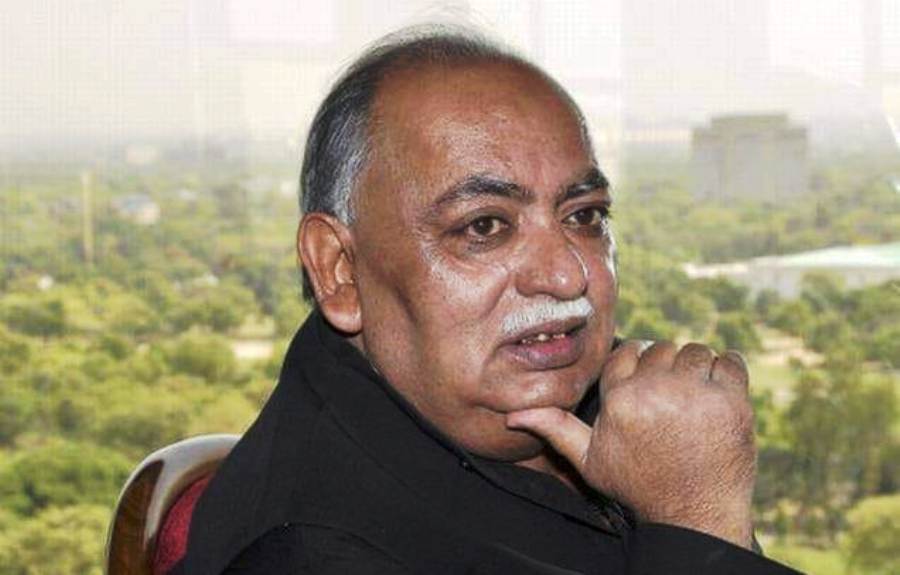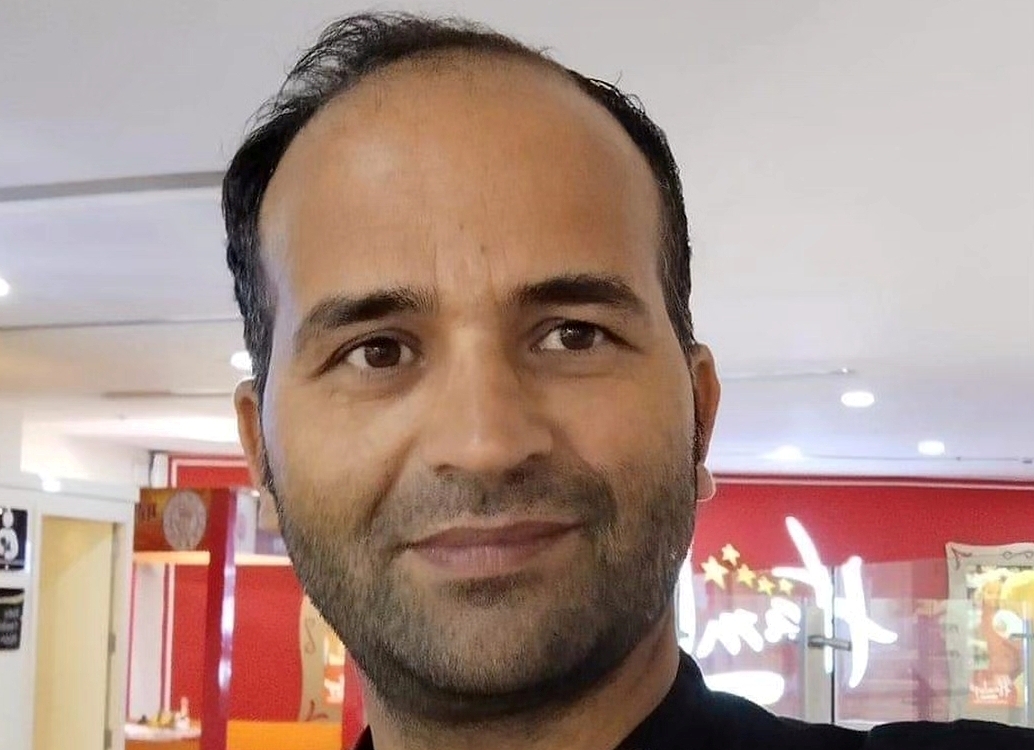by Sadaket Ali Malik
Rana’s literary influence extends beyond India’s borders, as his poetry, skilfully translated into English by Tapan Kumar Pradhan, has reached a global audience. The availability of translations in Hindi, Urdu, Gurumukhi, and Bangla further facilitates a broader understanding and appreciation of his work.

Munawwar Rana, the distinguished Urdu poet, who passed away on January 14, 2024, is remembered for his innovative poetic approach that seamlessly integrated Hindi and Awadhi, steering clear of Persian and Arabic influences. This deliberate linguistic choice not only defined his distinctive style but also rendered his verses more inclusive, resonating with a diverse audience across India.
Born in 1952 in Rae Bareli, (UP) Rana’s formative years were significantly influenced by the cultural tapestry of Kolkata, West Bengal, where he spent a considerable portion of his life. Renowned for his unparalleled expression of emotions and the formidable impact of his words, he commands a unique place in the literary landscape.
The genesis of Rana’s poetic journey lies in Rae Bareli. The rich milieu of this locale, coupled with the vibrant traditions of North India, left an indelible mark on his artistic expression, profoundly shaping his literary oeuvre.
Rana distinguished himself through a unique approach to his craft. His poetry stands out for its accessibility, characterised by a deliberate avoidance of complex language. This simplicity appeals to a wide audience, transcending the boundaries of poetry enthusiasts to resonate with anyone appreciative of heartfelt expression. Notably, Rana frequently delves into universally relatable themes, prominently exploring the profound love for mothers.
Among Rana’s celebrated works
is the poem Maa (Mother), a masterpiece eloquently extolling maternal virtues, resonating globally. Rooted in India’s cultural fabric, Rana’s poetry explores human emotions with simplicity and profound meanings, making it accessible to a broad audience. A recurring theme is the celebration of maternal love, vividly capturing a mother’s sacrifices and the emotional bond. Noteworthy is the poem Maa, a ghazal masterpiece where Rana reveres motherhood with profound skill. Quoting one of his couplets on motherhood:
“kisi ko gharmila hisse mein ya koi dukaaan aayi
main gharmein sab se chhota tha mere hissemein maa aayi”
(Someone got a share of a home, or perhaps a shop was gained,
In the home, I was the smallest, but in my share, Mother came).
In these lines, a glimpse into a facet of his life unfolds. The verses convey profound emotions as he contemplates someone gaining a share of a home or a shop. Amidst this reflection, he juxtaposes his physical stature as the smallest within the home with the undeniable magnitude of his share, symbolised by the pervasive presence of his mother.
What further sets Rana apart is his linguistic choice. By incorporating Hindi and Awadhi while eschewing the intricacies of Persian and Arabic, he ensures a seamless connection with Indian readers, particularly in regions where Urdu is not the predominant language. This linguistic strategy contributes significantly to his widespread popularity.
In 2014, Munawwar Rana received the Sahitya Akademi Award for his poem Shahdaba. His body of work, spanning various collections, is marked by a distinct approach, with a notable emphasis on expressing profound filial love, particularly towards his mother. Notably, he returned this accolade approximately a year later, citing concerns about escalating intolerance and perceived injustices within the country—an action reflective of his strong convictions.
Rana’s literary influence extends beyond India’s borders, as his poetry, skilfully translated into English by Tapan Kumar Pradhan, has reached a global audience. The availability of translations in Hindi, Urdu, Gurumukhi, and Bangla further facilitates a broader understanding and appreciation of his work.
In addition to the Sahitya Akademi Award, Rana has received various other honours, including the Ameer Khusro Award, the Mir Taqi Mir Award, and the Ghalib Award. His contributions have solidified his place in Indian literature, garnering widespread love and appreciation.
Rana’s poetry consistently mirrors the cultural diversity of India. Grounded in the linguistic nuances of Hindi and Awadhi, his words vividly depict the rich tapestry of Indian traditions. By eschewing Persian and Arabic influences, he maintains a connection with the cultural heritage of the region, rendering his poetry accessible to a broader audience.
The hallmark of Rana’s poetry lies in its emotional resonance. Whether conveying love, pain, or societal concerns, his words possess a unique ability to touch the heart. His skill in articulating complex emotions with simplicity attests to his mastery of the craft, forging a profound connection between the poet and the reader.
Beyond personal sentiments, Rana’s poetry frequently delves into societal issues, serving as a reflective lens on the challenges, injustices, and cultural shifts prevalent in society. This dimension adds a nuanced layer to his work, transcending individual experiences to offer a broader commentary on the world around him.
His poetry serves as a reflection of the human experience interwoven with the cultural tapestry of India. Through his verses, Rana encourages readers to explore the depth of emotions, contemplate societal challenges, and celebrate the universal threads that connect us all. His enduring legacy resides not only in awards and accolades but in the hearts of those who find solace and connection in the beauty of his words.
Rana transcends the role of a mere poet; he emerges as a creator of emotions. His straightforward yet potent expression of feelings has resonated with many, leaving an indelible mark. His words endure, not confined to pages but thriving in the hearts of those who seek solace and joy in his poetry. Rana stands as a poet of the people, contributing to a more approachable and empathetic realm within the world of poetry.
Notwithstanding his literary achievements, Rana found himself entangled in controversy on multiple occasions. In August 2020, he made remarks about the Ayodhya verdict and accused the former Chief Justice of India, Ranjan Gogoi, of compromising integrity.
In October 2020, Rana faced legal repercussions for endorsing a murder in France linked to Prophet Muhammad caricatures, charged with promoting religious enmity. Additional controversy arose in 2021 when his son, Tabrez Rana, was arrested in connection to an alleged staged shootout tied to a property dispute.

Munawwar Rana passed away on January 14, 2024, succumbing to throat cancer. His legacy is characterised by literary excellence, controversy, and a nuanced engagement with societal issues.
The news of Rana’s demise is saddening. His impact on poetry and literature resonates with many. May his soul rest in peace, and may his enduring legacy continue to inspire and provide solace to those who appreciate his contributions.
(The author is a blogger, writer, and linguist based in Jammu and Kashmir. Ideas are personal.)















